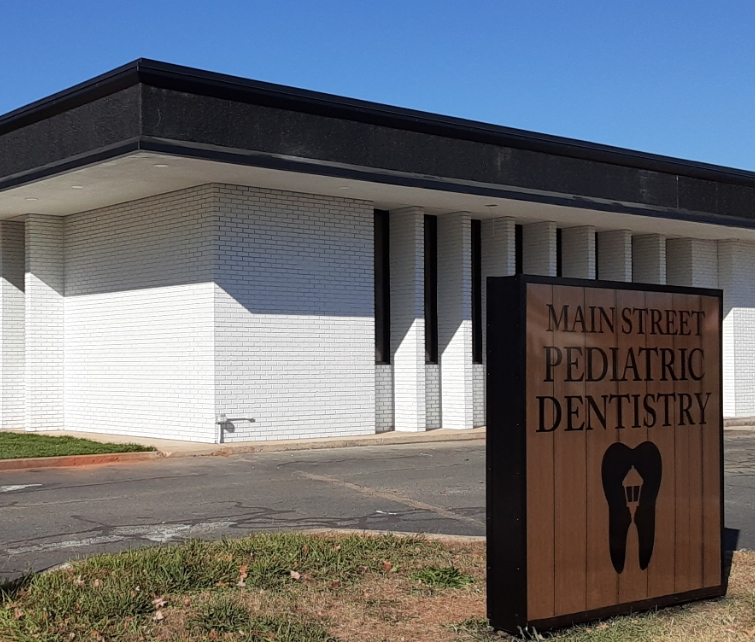Sports participation offers tremendous benefits for children’s physical development, teamwork skills, and self-confidence. However, athletic activities also present risks for dental injuries that can have lasting effects on your child’s oral health and smile. Understanding how to prevent and respond to dental sports trauma helps parents keep their young athletes safe while enjoying their favorite activities.
At Main Street Pediatric Dentistry Of Belmont, Dr. Matthew Savage treats numerous sports-related dental injuries throughout the year, from minor chips to more serious trauma requiring immediate intervention. By taking proactive steps to protect your child’s teeth and knowing how to respond to injuries, you can help minimize the impact of sports-related dental trauma on your child’s oral health.
Common Types of Sports-Related Dental Injuries
Tooth Fractures and Chips
Fractured or chipped teeth are among the most common dental injuries in youth sports. These injuries can range from minor chips affecting only the tooth’s outer layer to more severe fractures that expose the inner pulp. Even seemingly minor chips should be evaluated promptly, as they can lead to sensitivity, further damage, or infection if left untreated.
Basketball, baseball, and football are particularly associated with tooth fractures due to the potential for contact with balls, other players, or equipment. The impact force required to chip or fracture a tooth is surprisingly low, making protection essential even in sports that aren’t traditionally considered high-contact activities.
Knocked-Out Teeth
Complete tooth avulsion, where a tooth is completely knocked out of its socket, represents a true dental emergency requiring immediate action. The success of tooth reimplantation depends heavily on quick, appropriate response and prompt professional treatment. Permanent teeth have a much better chance of successful reimplantation than primary teeth, making proper emergency response crucial for older children and teenagers.
Soft Tissue Injuries
Sports activities can cause cuts, bruises, and lacerations to the lips, cheeks, tongue, and gums. While these injuries may seem less serious than tooth damage, they can be quite painful and may require professional evaluation to ensure proper healing and rule out more serious underlying damage to teeth or jaw structures.
High-Risk Sports and Activities
Certain sports carry higher risks for dental trauma than others. Contact sports like football, hockey, and lacrosse have well-documented associations with dental injuries, but many parents are surprised to learn that basketball and baseball also account for significant numbers of dental trauma cases.
Individual sports like cycling, skateboarding, and gymnastics can also result in dental injuries, particularly when falls or collisions occur. Even seemingly low-risk activities like playground games or physical education classes can lead to dental trauma when children collide with equipment, other participants, or hard surfaces.
Understanding risk levels helps parents make informed decisions about protection and supervision while allowing children to enjoy the benefits of athletic participation. The goal isn’t to avoid sports but to participate safely with appropriate protective measures in place.
Prevention Strategies for Athletic Dental Safety
Custom Mouthguards
Professional custom-fitted mouthguards provide the best protection against sports-related dental injuries. Unlike store-bought options, custom mouthguards are designed specifically for your child’s mouth, ensuring proper fit, comfort, and protection. They’re more likely to be worn consistently because they don’t interfere with breathing or speaking during activities.
Custom mouthguards distribute impact forces across multiple teeth rather than concentrating them on individual teeth, significantly reducing the risk of fractures, chips, and complete tooth loss. They also provide cushioning for soft tissues, reducing the severity of cuts and bruises during impact.
Proper Equipment and Technique
Ensuring your child uses appropriate, well-fitted protective equipment beyond mouthguards can reduce overall injury risk. Helmets, face masks, and other protective gear should be properly sized and maintained according to manufacturer specifications and league requirements.
Teaching proper technique and emphasizing fair play also contributes to injury prevention. Children who understand how to fall safely, avoid dangerous plays, and respect other participants are less likely to experience traumatic injuries during sports activities.
Emergency Response to Dental Sports Trauma
Immediate Action Steps
When dental trauma occurs during sports activities, quick, calm response can make the difference between successful treatment and permanent damage. For knocked-out permanent teeth, time is critical—the best outcomes occur when teeth are reimplanted within 30 minutes of injury.
Handle a knocked-out tooth by the crown, avoid touching the root, and rinse gently if dirty. If possible, try to reinsert the tooth into its socket. If this isn’t feasible, store the tooth in milk, saliva, or a tooth preservation product while seeking immediate professional care.
When to Seek Professional Care
Any dental injury during sports activities warrants professional evaluation, even if damage appears minor. Chips, cracks, or loose teeth may indicate more serious underlying damage that isn’t immediately visible. Additionally, trauma to primary teeth can affect the development of permanent teeth beneath them.
Contact your pediatric dentist immediately for guidance on emergency care and to arrange prompt evaluation. Having emergency contact information readily available during sports activities ensures you can access professional guidance quickly when needed.
Long-term Considerations and Follow-up Care
Dental trauma can have lasting effects that don’t become apparent immediately after injury. Traumatized teeth may develop problems weeks, months, or even years later, making long-term follow-up care essential for monitoring healing and detecting complications early.
Regular dental visits allow your pediatric dentist to monitor previously injured teeth for signs of nerve damage, root resorption, or other complications that may require intervention. Early detection and treatment of these issues can often prevent more serious problems and preserve your child’s natural teeth.
Balancing Safety and Participation
At Main Street Pediatric Dentistry Of Belmont, Dr. Matthew Savage provides comprehensive care for sports-related dental injuries while helping families develop effective prevention strategies. With extensive experience treating athletic dental trauma and a commitment to keeping young athletes safe, Dr. Matthew Savage offers custom mouthguards, emergency care, and education to help protect your child’s smile during sports activities.
Don’t let dental injuries sideline your young athlete. Contact Main Street Pediatric Dentistry Of Belmont today at (980) 990-2878 or visit our contact form to discuss custom mouthguards and sports safety strategies that will keep your child’s smile protected throughout their athletic journey.
